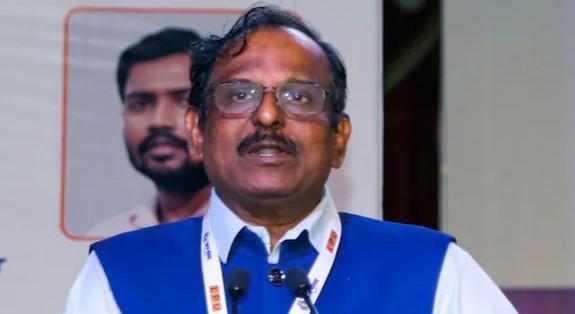
10 Satellites Working to Ensure Citizens’ Safety: ISRO
In the midst of heightened tensions between India and Pakistan, the Indian Space Research Organisation (ISRO) has been working tirelessly to ensure the safety and security of Indian citizens. ISRO Chairman V Narayanan recently revealed that 10 satellites are continuously working around the clock to monitor and protect the country’s borders.
The primary role of these satellites is to monitor India’s 7,000 km long seashore areas, which are vulnerable to threats from across the border. Without the use of satellite and drone technology, it would be extremely challenging for the Indian authorities to achieve this task.
In an interview, ISRO Chairman V Narayanan emphasized the importance of satellite technology in ensuring the security of the country. “We have to monitor our 7,000 km seashore areas. Without satellite and drone technology, we can’t achieve many things,” he said.
The 10 satellites are part of a network that provides real-time surveillance and monitoring capabilities to the Indian authorities. These satellites are equipped with advanced sensors and cameras that enable them to capture high-resolution images and detect any suspicious activity.
The use of satellite technology has become increasingly important in recent years, as it provides a crucial tool for monitoring and responding to potential threats. With the ability to capture images and transmit them in real-time, satellite technology has enabled the Indian authorities to respond quickly and effectively to any potential threats.
In addition to the 10 satellites that are currently in operation, ISRO is also scheduled to launch another surveillance satellite on May 18. This new satellite is expected to further enhance the capabilities of the Indian space agency and provide even greater levels of surveillance and monitoring capabilities.
The launch of the new satellite is part of ISRO’s ongoing efforts to strengthen its capabilities and improve its ability to respond to threats. In recent years, the space agency has made significant strides in developing its capabilities, including the launch of several advanced satellites that have enabled it to capture high-resolution images and detect even the smallest of changes.
The use of satellite technology is not limited to monitoring and surveillance. It also plays a critical role in a range of other areas, including emergency response, disaster relief, and natural resource management. In the event of a natural disaster, for example, satellite technology can be used to quickly identify the affected areas and provide critical information to emergency responders.
In addition to its scientific and technological capabilities, ISRO also plays a critical role in promoting scientific literacy and education. Through its various programs and initiatives, the space agency is working to inspire young people to pursue careers in science and technology.
The launch of the new satellite on May 18 is expected to be a significant step forward for ISRO, and will further enhance its capabilities and reputation as a leading space agency. As the space agency continues to push the boundaries of what is possible, it is likely to play an increasingly important role in ensuring the safety and security of Indian citizens.
In conclusion, ISRO’s 10 satellites are working tirelessly to ensure the safety and security of Indian citizens. With the ability to monitor and respond to potential threats, these satellites are a critical tool in the fight against terrorism and other forms of violence. As the space agency continues to develop its capabilities and launch new satellites, it is likely to play an increasingly important role in ensuring the safety and security of Indian citizens.
Source:






